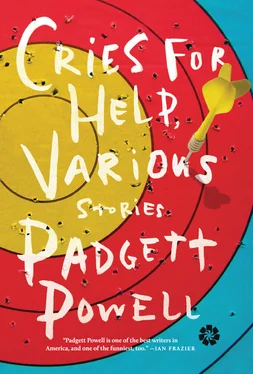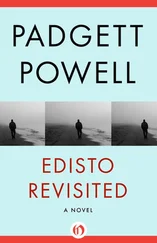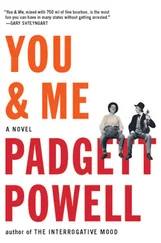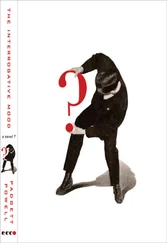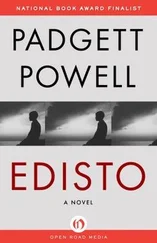Why am I on about this cork and its new alien, plastic axis? Well, for one thing, as you can tell, I find something aesthetically pleasing about its construction, its antinomies, its little ironies, even its indictment of my intellectual fundament, or perhaps I mean my epistemological grasp, by which I might mean my sense that that summer-school course in geometry following the tenth grade, which might serve as a symbol for my education entire, was not adequate. For another, this cork sits here in its pleasing contrasts telling me I might even go fishing. There, fishing, with cork upright and approximately one-half submerged, in the slim event — it is the modern world — a fish takes it down, it will displace water to a greater degree as it sinks and then upon actual submersion the water will close over the larger plane of its top with considerable force and effect a very agreeable little snap or pop, and this sound — coupled with the undiluted boyhood thrill of game on and the enduring surprise of seeing the cork disappear —will startle me in a finite and uncomplicated and most pleasing way. Something more involved and more mundane may ensue — a fish one does not want, a fish injured one does not wish to injure, one’s bait robbed, etc. — but the moment of the cork in the water, at the ready, is pure. I have no need, however, of taking it fishing: I have the cork with the line through it, and that is enough. It is itself, a thing I have made. It is there. It does not bode complications. It is not a telephone, say, that is going to ring. It does not contain an assault upon me of the world and my dim access unto it.
I could now freely call the most beautiful reference librarian in the world and not ask the name of the figure of the cork. I could say, “I have a thing I do not need trouble you with the naming of. I remember you from a party. I saw you and was struck by you. You could be making a living with your looks, professionally, I mean, and I trust you do not think I am being vulgar, though I suppose I am. Let it be: I am vulgar. You could be comfortable and famous by contriving to let men, and women, look at you, as opposed to not being comfortable or famous and having men call you up and ask you the name of the figure of the cork they might be wasting their little lives playing with. I saw you and was struck by you to such a degree that the obviousness of carnality went right by us as I stepped up and talked to you, openly and cleanly, except for the fact that I correctly noticed that no other men were stepping up to talk to you because they were stuck in the carnality of their imaginings of you. You bring that on in a mortal, you effing librarian. It is just that I am a little past mortal, or not yet there. I have no doubt been there — there was a time I would have run from the room as other men, or stepped up and proposed intercourse in some properly masked fashion, but now I have reached the cork stage. I have this cork here, it is not a phone that is going to ring — and even when I say that I see a comparatively agreeable Bakelite phone of the forties with a rotary dial and five-digit numbers and a live operator you might know the first name of, not the instrument of complex tumor-bearing mind-scattering hell that a phone represents today — I have this cork, I don’t have you, I want this cork, I might want you.”
That would be okay, saying that, not unlike seeing the cork go down, before the ensuing mundane complications of the catch or the repudiation, the tangle of lives, the impure disentangling that is always necessary and never final.
There are people one wants to know, and people one does not want to know, and of course people one would want to know and people one would not want to know if one met them. A few people know a lot of people, many people know a few people, and some people know just some people. It comes down to the impulse to know everyone or to know no one. It’s a distillation column. At the top are the gregarious everyone-knowers, at the bottom the hermits. At the top the saints, at the bottom the killers. Some killers just want to kill one person, some want to kill hundreds or thousands. At the very bottom is a man who knows no one but himself, not well, and wants to kill himself.
He has one pair of shoes and once had a dog. The dog liked to eat ice cream from a bowl, and its impeccable house habits and grooming habits deteriorated after it was struck by a car. After that it was accidentally closed in a car in the sun and died of heat prostration and the man found the dog with its collar improbably caught in the seat springs under the car seat. He, the man, was about twelve. The dog was not, as the expression goes, still warm; the dog was very hot. The man, or boy, pulled the dog out by the collar once he got him free of the undercarriage of the seat and laid him on a patch of green grass to cool down. He went inside and reported to his mother and father that Mac was dead.
Mac was a wire-haired terrier and looked handsome there cooling in the grass. His life had been hard after the accident with the car: a pin in his hip, the shitting on the patio, the no longer having a festive taste for ice cream from a bowl. The father freshened a hole in the backyard that had been begun by the boy for an underground fort and buried Mac in it. When later he could not find his reading glasses it was theorized that they had slipped from his pocket into Mac’s grave, and the mother asked the boy to dig Mac up and look for the glasses. What? the boy asked, and the mother then suggested it was not after all a good idea and desisted in the request that the boy dig the dog back up before the boy asked, as he later felt he would have, why he and not his father — who had alone conducted the burial and alone selected the depression left by the boy’s abandoned fort— why he and not the father was to dig the dog up, looking for the father’s, not his, glasses. The dog died trapped in a salmon-colored Renault. It was not known who closed him in it.
Not much else is known. It is not known why we become more frightened or saddened by things as we age rather than less.
He would regard the objects around him and remark on them. He would regard the objects around him and not remark on them. He would not regard the objects around him and remark on them. He would not regard the objects around him and not remark on them.
These dispositions came and went, overlapping each other, mingling equally or one dominating for a time, then the others, in any order. But over time he came to see that he had observed them more or less in the given order, and that they had, while enjoying overlaps and recessions, succeeded each other like phases of the moon. He was now not regarding things and not remarking on them. It was agreeable but left him little to do. The difficulty, among others, with observing and remarking on things was that it was too much to do, as was observing and not remarking, as was not observing and remarking anyway. So he felt that if he felt there was too little to do in not observing things and not remarking on them, that this was a trivial sensation that would pass and give way to the great unbusy and wise calm he was after.
Traveling from point to point was next: it was clearly, literally, pointless in the long run. In the short term it was just dailiness and the dull business of surviving the days. In surviving the days people were trying to lengthen their time on earth in order to reduce mind and body as much as possible to a skeleton before stepping into the grave. It seemed to him that that could be accomplished more elegantly and with less waste by just sitting in a good chair. “Let’s get this show on the road,” he said one day, the last thing he ever said, and picked his chair and sat.
Читать дальше
